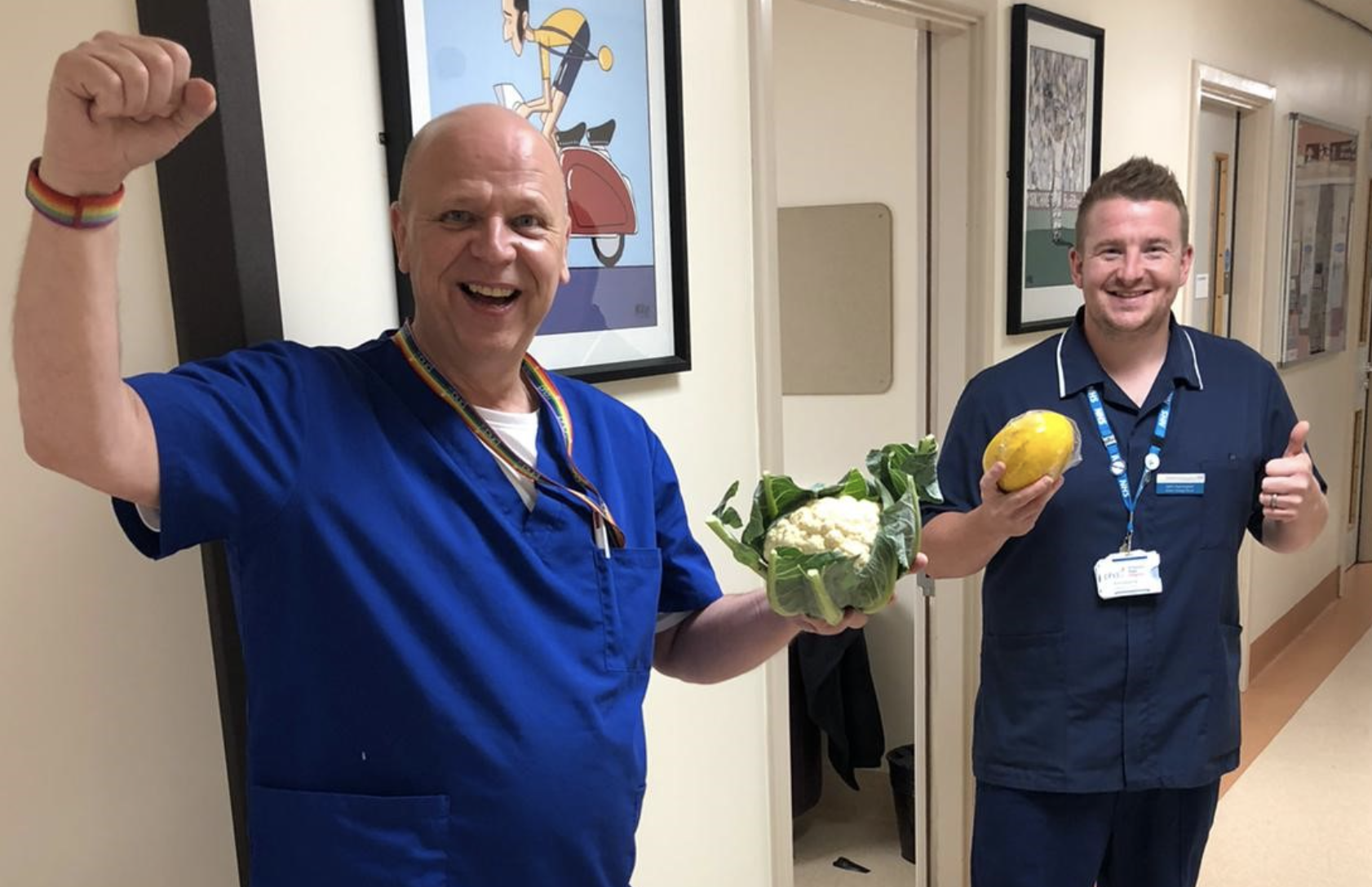A pair of Sheffield nurses have raised over £1700 for a rare disease charity after taking on a sponsored slim during the coronavirus crisis.
Iain Armstrong and John Harrington, who work in the Royal Hallamshire Hospital’s Pulmonary Vascular Disease Unit, beat their 26lb weight loss target to shed 31lb between them over the course of six weeks.
The challenge was inspired by the UK-wide 26.2 initiative, designed to support charities losing money due to the pandemic. Their fundraising total of £1736 will benefit the Pulmonary Hypertension Association (PHA UK), a national charity based in Chapeltown.
Pulmonary hypertension (PH) affects just 7000 people in the UK and is caused by the thickening and stiffening of the blood vessels supplying the lungs. The life-limiting condition has no cure but can be managed with specialist care.
The Pulmonary Vascular Disease Unit at the Royal Hallamshire Hospital is one of just six specialist PH treatment centres in England.
Iain, who lives in Stocksbridge, is a nurse consultant within the unit and chair of the PHA UK. He said: “People living with PH are classed as clinically extremely vulnerable and have had their lives turned upside down by the coronavirus pandemic. John and I wanted to do something to raise money for the charity which supports them, take control of our own health during a very stressful time, and reinforce that we really are all in this together.”
Father-of-two John is the unit’s ward manager. He said: “Like so many charities, the PHA UK has suffered from a downturn in fundraising activity due to the pandemic, so I wanted to do my bit to help. Trying to diet whilst running a hospital ward during the Covid-19 crisis hasn’t always been easy, but I’m delighted with how much we have raised. Thank you to everyone who has supported our endeavours – we promise to try and keep the weight off now!”
People can be born with pulmonary hypertension or develop it at any time, and it can affect anyone, regardless of age or ethnic background. It affects more women than men.
Thanks to a range of highly advanced treatments developed over the last 15 years, people with the condition have seen quality of life improve and life expectancy increase to around six to seven years on average. Many live longer, but there is no cure.






